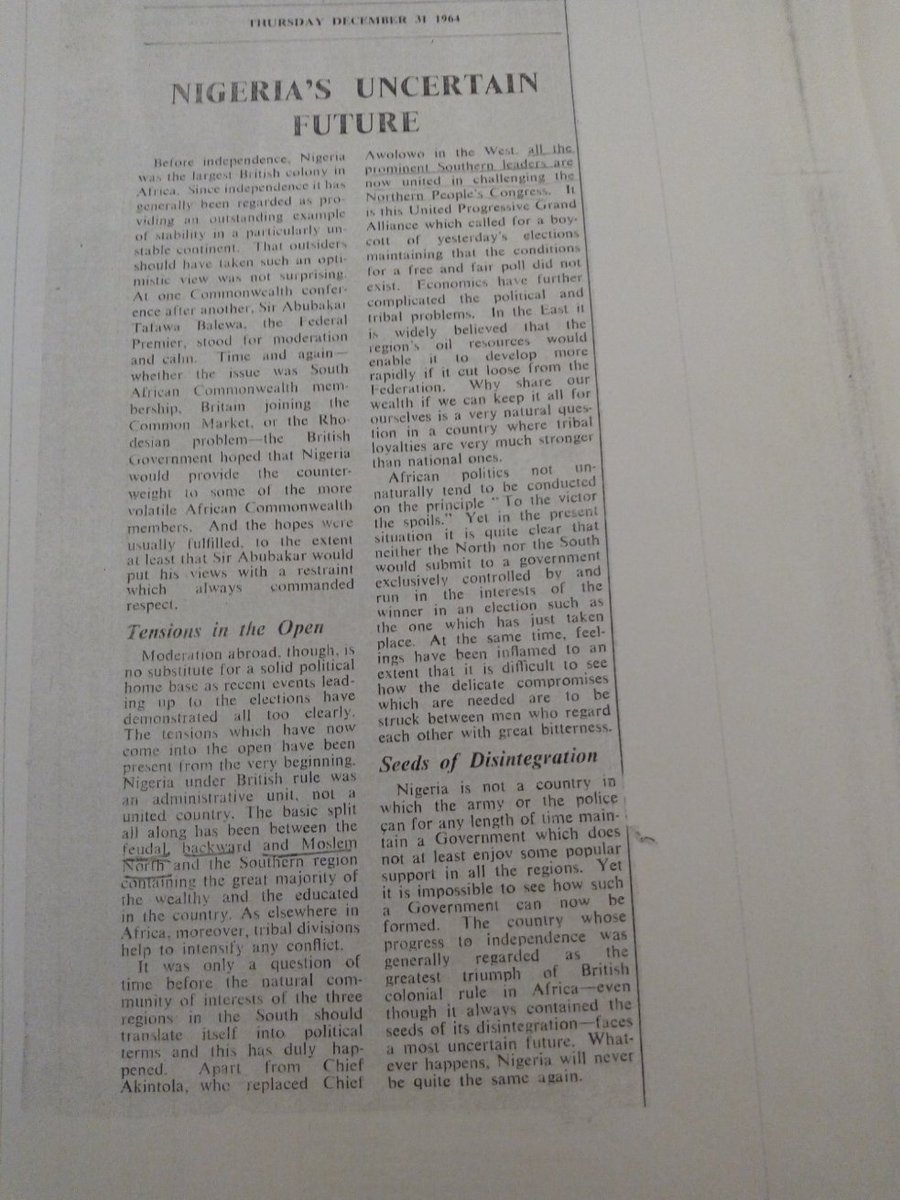Today, we'll be discussing the 1964 federal elections, the first nationwide elections organized in independent Nigeria and an ominous sign of things to come.
So Southern leaders looked for a new strategy. Meanwhile, in 1963, Nigeria was transformed into a constitutional republic
In 1964, Zik's NCNC party decided to team up with their former bitter rival, Action Group, battered and weakened, with their historical leader Awo in jail, but still standing.
The main goal was to wrest control of the centre from NPC, rendering the stakes very high for Bello's party, which faced potential national-level marginalization if UPGA triumphed.
Together they formed the Nigerian National Alliance (NNA) coalition.
In the first four years of independence, Bello's NPC ruled Nigeria in combination with the Igbo-led NCNC as a junior partner. During this period, he had no plausible or political
"Party manifestos have long since been forgotten in the heat of the battle. The overwhelming emphasis
Meanwhile, Yemi Babatunde, The Guardian's Nigeria correspondent so commented the 1964 election campaign in the Western
"An unpopular [Western] government regarded by many people as stooges of the North must try to cajole or threaten the population to vote for it...[AG and NNDP] adopted long before
In the end, 88 of 174 seats were declared "unopposed" in the North after local officials hindered the
Perhaps we'll end there today folks. Tomorrow, the 1965 Western Regional elections which eventually led to the 1966 January coup. Have a great week!










